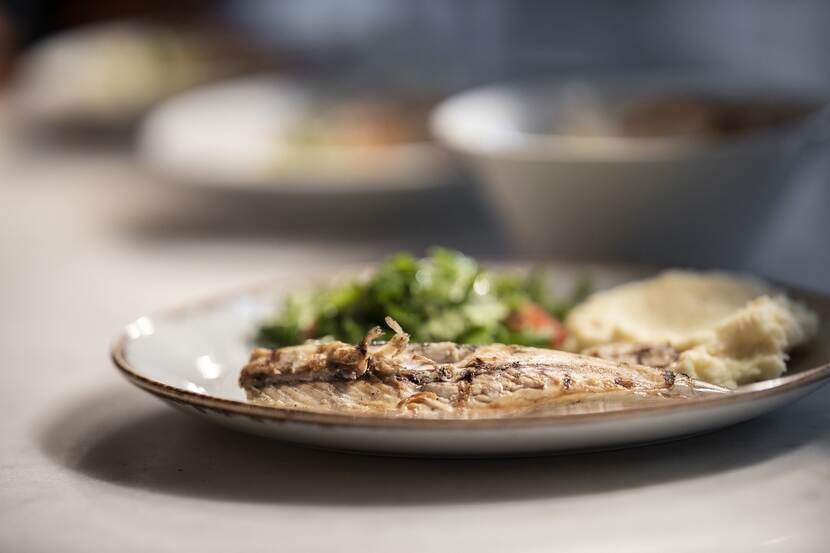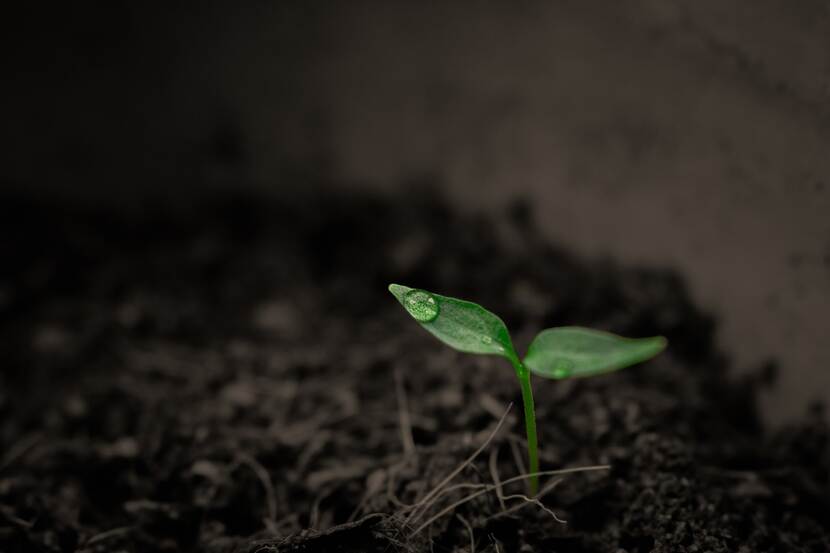Serbia Newsflash Week 50
Aquaculture and the pandemic, meat sector issues, soil analysis program, food industry investments, expectations for 2021, food waste reduction - The week in Serbian agriculture

Demand for fish halved due to Covid-19
The end of a year in Serbia is typically marked by high consumption of fish due to the celebration of family patron saint’s days and the Nativity Fast. However, this year is different because the demand for fresh fish has been halved due to the COVID-19 pandemic, which was stated by the Serbian Chamber of Commerce (PKS). The Head of the PKS Fishing Group and the Kapetanski Rit fish pond, said that carps are currently offered at a wholesale price of €1.7/kg, which is below the production price. According to the PKS expert, fishermen would benefit from a 50% reduction or complete abolition of fees for the use of water areas. Moreover, their debts arising from the above-mentioned activity should be written off, and their subsidies per kg of produced fish should be increased. According to the Statistical Office of Serbia, exports of fish and fish products in 2019 were 130% higher than in 2014, while imports rose by 10% since 2014. However, in the first eight months of 2020, both imports and exports of fish and fish products dropped. Serbian fish imports are 3.8 times higher than fish production, and last year, the country imported 35.707 tons of fish and fish products worth €93.4 million in total.
Prices and demand for pigs and cattle declining
Over the past month, pork and beef prices have declined to a level lower than production prices, and the demand is also down so cattle breeders do not know what to do with surpluses. The president of the Association of Livestock Breeders of the Srem and Macva Districts, Mr. Eric told local news agency that the production price of fatlings was €1.35/kg (liveweight), while traders paid €1,1– €1.14/kg. “Pig farmers lose up to €17– €25.5 per fatling. Pork prices are also down to €1.36/kg, while the production price is €1.6/kg because wheat, maize, and soy prices are up,” Eric said. According to him, Serbian slaughterhouses import cheap meat for €3-5 million from European countries every month and process it. “We know a company that constantly imports frozen meat and meat products, and for Serbian pig farmers, every truck carrying that meat means 1,000 pigs will not be sold,” Eric explained. Agroprofit Association President Cedomir Keco says there is a similar issue with beef because the market currently has a surplus of 8 to 9 thousand cattle that cannot be sold.
Soil analyses by mobile apps started
This autumn, 22 state advisory extension service units started sampling soil for chemical analyses by the mobile app provided by the Ministry of Agriculture. From one hectare, 25 samples are being taken, and by the use of the mobile application, GPS coordinates and parcel numbers are sent to the database. Experts of the agriculture advisory service explained that the use of mineral fertilizers will be tailored according to the soil analyses results. The soil and its quality is one of the victims of the climate changes. Pollution, erosion impoverishment, decline in organic matter are just few of the impacts to the soil degradation. The soil analyses specific for each land parcel will result in the decline of the production costs and increase of yields. Farmers are willing to cooperate with experts in on this issues since they are aware they use more mineral fertilizers than needed.

Food industry has received over €38 million euros in incentives since 2006
The Serbian Ministry of Economy has approved over €38 million worth of incentives to 32 investors in the food industry sector since 2006, the Serbian National Alliance for Local Economic Development (NALED) reported. Thanks to the incentives, most investors have been able to boost their workforce and some have even seen a revenue increase of up to 25% compared to the year in which they applied for financial support. The companies that have received such state assistance over the past years each have 84 more employees on average, according to an analysis conducted by NALED and the Ministry of Economy as part of the P2P project “Prepare to Participate”. The EU-funded project is carried out by the European Policy Centre, NALED, the European Western Balkans portal and the Centre for Contemporary Politics. The value of the planned investments are between 305 thousand and €45 million. Approved support is between 116 thousand and €12 million.
Local companies plan significant investment in 2021
Around a dozen large businesses have already announced investments in various sectors in 2021, which leads to some optimism that businesses believe they must keep growing further, Serbian Chamber of Commerce President Marko Cadez announced at a panel discussion held at the CEO Summit Belgrade 2020. The investments announced by companies Elixir , MK Group, Moji Brendovi and Matijevic have their main business in agro and food industry sector. Such investments will lead to a rise in Serbian exports. Moji Brendovi CEO Andrej Jovanovic, said that despite the crisis, now is the right moment to make large investments. He believes Serbian businesses need to encourage foreign investors to develop joint projects in Serbia and in the region, while the government should encourage the development of small and medium-sized businesses. “Investments are the most pragmatic way to achieve a goal, as there are opportunities and potential for that”, the CEO of Moji Brendovi added.
15 thousand tons of food left behind by restaurant customers
Systematic planning of food purchases and portion sizes as well as appropriate food waste management could help Serbian hospitality establishments save financially while contributing to a reduction of environmental pollution, was explained at the online workshop titled “How to Treat Food Waste”. The workshop was tailored for representatives of hotels, restaurants and cafes. All hospitality businesses were once again urged to join a campaign to collect thousand tons of food waste to prevent the emission of 750 tons of carbon-dioxide. “Serbian hospitality establishments order around 120 thousand tons of food in a year, with around 40 thousand tons ending up as waste – 25 thousand tons in kitchens and around 15 thousand tons on plates left behind by customers” was explained by NALED, one of the organizers of the workshop. “If hospitality establishments would plan ingredient purchases and portion sizes appropriately while also appropriately separating animal waste from vegetable waste and handing them over to an operator, hospitality businesses would not only see financial benefits, but would also be fully recognized as socially responsible companies, given that waste that ends up on a landfill emits dangerous greenhouse gases,” EsoTron regional manager Bojan Gligic explained.
Wheat sowing season is finished
The autumn wheat sowing season in Serbia was finished at the end of November. A little more than 600 thousand hectares have been sowed, and the crops were in good condition, was stated by Serbia Grains Association. It was assessed that this year’s yield could reach approximately 1.3 million tons for export. Developments in grain markets in Black-sea region resulted in higher demand on Serbian market. There is a higher demand for Serbian corn due to lower yields of corn in Ukraine and Romania. The average yield of corn in Serbia was 8.1 t/ha and total harvest was 8.1 million tons. These are good results but not an absolute production record, which was the case two years ago, stated the representative of the Serbian Grains Association.